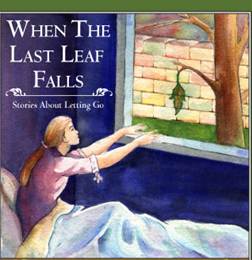
At the top of a three-storey brick house Sue and Johnsy had their studio. In November a cold, unseen stranger, whom the doctors called Pneumonia(肺炎), touched one here and there with its icy fingers. Johnsy was struck down, and she lay, hardly moving, on her bed looking through the window at the blank side of the next brick house.
One morning the busy doctor invited Sue into the hallway(走廊).
“She has one chance in ten,” he said, “And that chance is for her to want to live. She has made up her mind that she’s not going to get well. I will do all that I can. But whenever my patient begins to count the carriages in her funeral procession(队列), I
subtract 50 percent from her chance to live.”
After the doctor had gone, Sue went into the workroom and cried. Then she came into Johnsy’s room with her drawing board, whistling.
Johnsy lay hardly moving with her face toward the window. Sue stopped whistling, thinking she was asleep.
She arranged her board and began a drawing. As Sue was sketching, she heard a low sound. She went quickly to the bedside.
Johnsy’s eyes were open wide. She was looking out the window and counting backward.
“Twelve,” she said, and a little later “eleven”; and then “ten”, and “nine”; and then “eight” and “seven”, almost together.
Sue looked out the window. What was there to count? There was only the blank side of the brick house twenty feet away. An old ivy vine(常春藤) climbed halfway up the brick wall. Its branches clung(紧紧缠着), almost bare, to the bricks.
“What is it, dear?” asked Sue.
“Six,” said Johnsy, in almost a whisper. “They’re falling faster now. Three days ago there were almost a hundred. There goes another one. There are only five left now”.
“Five what, dear? Tell me.”
“Leaves. On the ivy vine. When the last one falls, I must go, too. Didn’t the doctor tell you?”
“Oh, I never heard of such nonsense,” said Sue. “What have old ivy vine leaves to do with your getting well? Why, the doctor told me this morning that your chances for getting well real soon were ten to one! Try to take some soup now.”
“There goes another. No, I don’t want any soup. I want to see the last one fall before it gets dark. Then I’ll go , too.”
“Johnsy, dear,” said Sue, bending over her, “will you promise me to keep your eyes closed, and not look out the window until I’m done working? I need the light or I would draw the shade down.”
“Tell me as soon as you have finished,” said Johnsy, closing her eyes, “because I want to see the last one fall. I’m tired of waiting. I want to turn loose my hold on everything and go sailing down, down, just like one of those poor, tired leaves.”
小题1:By saying “Pneumonia touched one here and there” (in the first paragraph), the author means that _________.
| A.some people were affected by the illnesses of others |
| B.pneumonia caused damage to the ivy vine |
| C.two people became ill |
| D.many people came down with the illness |
小题2: How did Johnsy feel about the situation during the passage?
| A.confident | B.hopeless | C.tired | D.curious |
小题3:We can learn from the passage that _____________.
| A.Sue came into the room whistling perhaps because she thought Johnsy might like the music. |
| B.Johnsy’s life was compared to the carriages in a funeral procession |
| C.Sue told a lie to Johnsy about the doctor’s words |
| D.Johnsy wanted to know about the falling ivy leaves to meet her own curiosity |
小题4:The underlined word “subtract” in the third paragraph probably means “________”.
| A.reduce | B.hope | C.add | D.doubt |
小题5:The passage is probably taken out of ______________.
| A.a newspaper | B.a novel |
| C.a medical report | D.a girl’s diary |




